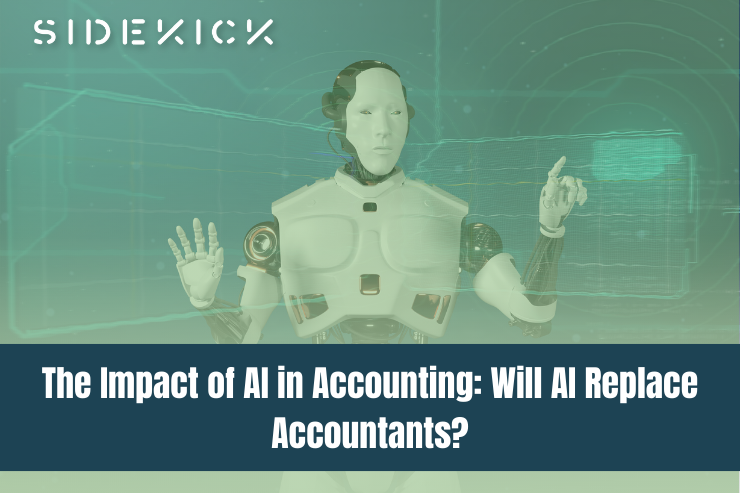Artificial intelligence has transformed nearly every industry, including accounting. From automating dull tasks to providing deep insight into data, AI is slowly gaining traction in the accountancy domain. However, with any technological evolution, the one question it asks is whether it can replace accountants.
Understanding AI in Accounting
The application of artificial intelligence technologies improves the accounting process. AI in accounting relates to machine learning, natural language processing, and automation tasks that have traditionally been manual. Use AI to make business operations efficient, reduce error rates, and generate actionable insights from financial data.
The Benefits of AI in Accounting
There are numerous benefits of AI in accounting. Here are some key advantages:
- Routine work automated: With AI in place, data entry, invoice processing, and reconciling with banks are automatically taken up, leaving accountants more time for strategic activities.
- Increased accuracy: AI reduces the extent of human error and comes with high precision for reporting and compliance on finance matters.
- Real-Time Financial Insights: AI tools can scan vast amounts of data extremely fast to offer real-time insights for better business decisions.
- Cost Efficiency: Automation reduces the cost of operations with high accuracy and efficiency.
- Fraud Detection: The AI algorithms easily detect unusual patterns and irregularities in financial transactions, thus providing security.
Examples of Artificial Intelligence in Accounting
Many applications of AI are changing the accounting world. For instance, some of the most popular AI in accounting include:
- Optical Character Recognition: OCR is an AI-based software that can read scanned documents and receipts and convert them into digital data, thus helping bookkeeping.
- Customer Communications Chatbots: These AI chatbots respond to any customer query, bringing instant support for superior service.
- Predictive Analytics: The AI system predicts the cash flow trend that helps boost business planning.
- AI applications to classify expenses and generate reports involve tools like Expensify and QuickBooks.
Is Your Accounting Team Ready for AI?
Get in Touch
Fill out the form below, and we will be in touch shortly.
Will AI Replace Accountants?
Although AI brings much advancement into the accounting profession, no one will replace accountants. Instead, AI is a potent complement to human expertise. That is why:
- Human judgment is irreplaceable as accountants carry critical thinking and ethical judgment for complex financial situations, and AI cannot replace it.
- Client relationships are only developed through face-to-face contact; trust, awareness of client needs, and expertise level are absent in AI.
- Strategic Advisory Roles: The routine work is assumed by AI, and accountants can be positioned in advisory roles providing strategic insights and business planning.
Challenges of Implementing AI in Accounting
AI in accounting has merits, but integrating AI into accounting and finance is difficult.
- High development costs: AI technologies are very costly for small businesses to develop.
- Training and Adaptation: Accountants must learn to work appropriately with AI tools.
- Data Privacy Issues: Any sensitive financial information needs protection.
- Dependence on technology: Dependency on AI creates problems when it breaks.
The Future of AI in Accounting
The future of AI in accounting lies in collaboration. The accountants who will adopt AI and upskill will find new opportunities they can use strategically because they can offer greater value to their clients with the infusion of technological proficiency and human experience.
AI integration will also increase because of advancements in blockchain transforming the field. Hence, it is the job of businesses to invest in AI tools and, more importantly, train their workforce accordingly.
Conclusion
Undoubtedly, AI in accounting brings about efficiency, accuracy, and innovation. However, that should not undermine the significance of the human accountant; the role simply changes with automation. Accounting organizations and professionals will be better prepared to face competition as long as they know the opportunities and limitations of AI.
Whether it is about the advantages of AI in accounting, examples of artificial intelligence in accounting, or the challenges involved, this technology needs to be addressed responsibly. It does not replace the accountant but elevates the accounting profession to greater heights.







